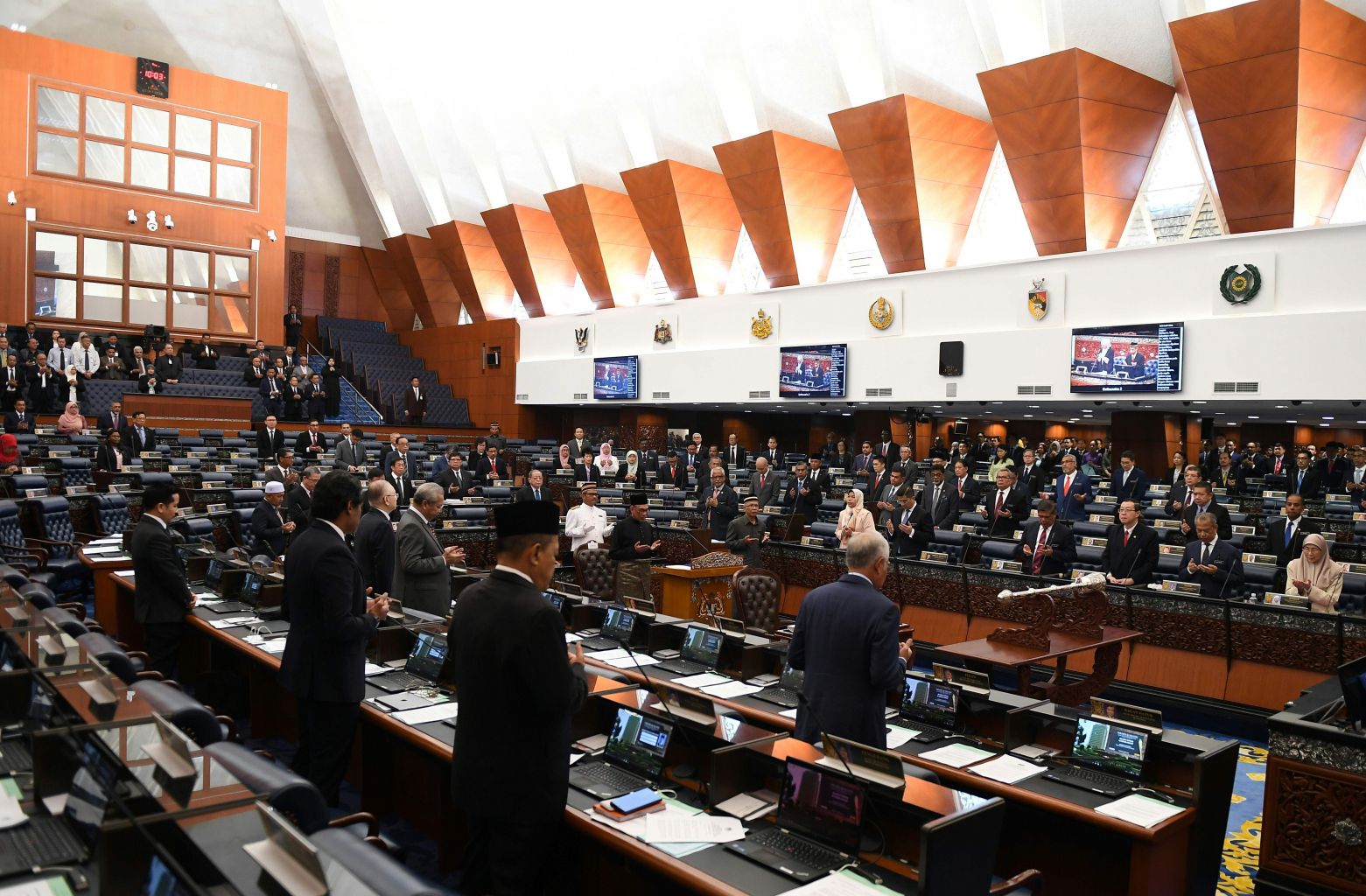KL mulls over abolishing death penalty, plans to commute death sentences to 30 years in prison
Sign up now: Get insights on the biggest stories in Malaysia

The Malaysian government is expected to table a motion in the House in the current parliamentary session to abolish the death penalty, a sensitive issue in the Muslim majority-nation.
PHOTO: AFP
Follow topic:
KUALA LUMPUR (THE STAR/ASIA NEWS NETWORK) - Malaysia will commute existing death sentences to a minimum of 30 years' imprisonment, should the country decide to abolish the death penalty, de facto Law Minister Liew Vui Keong said on Tuesday (Oct 16) in Parliament.
The five-month old Malaysian government is expected to table a motion in the House in the current parliamentary session to abolish the death penalty, a sensitive issue in the Muslim majority-nation where the death penalty is seen an effective deterrent to crimes such as drug dealing.
The Parliament session that started on Monday (Oct 15) will end on Nov 29.
"There will be no retrospective effect for those serving their sentences, if it has been commuted to 30 years' life imprisonment," said Datuk Liew, Minister in the Prime Minister's Department in charge of law.
"Their jail term will run from the date the pardons board commutes their death sentences to life imprisonment," he said, when answering a supplementary question from a Pakatan Harapan lawmaker.
He said that apart from the 30-year life imprisonment, there would be instances where inmates would end up spending the rest of their natural life behind bars.
To a question from opposition MP Wee Ka Siong of Johor, who said the decision to abolish the death penalty is hasty, Mr Liew said a study titled "Death Penalty in Malaysia and the Way Forward" was carried out by the Attorney-General's Chambers.
The minister said the study took several factors into consideration and recommended that the death penalty in Malaysia be abolished altogether.
He added the study noted there was no proof to show that the death penalty served as an effective deterrent.
He said the study also found that there was a risk of an innocent person being sent to the gallows due to a wrongful conviction.
"There are instances where those accused of murder were convicted based on false testimony from the key witnesses."
"Although the conviction may be set aside due to false testimony, the fact is that the conviction could have led to the death penalty," Mr Liew said.
He said the government is committed to abolishing the death penalty, which was in line with Point 27 of PH's manifesto to do away with cruel and oppressive laws.
Mr Liew said there are currently 32 laws that carried the death penalty, of which 12 were mandatory sentences.
There are 1,267 prisoners on death row and about 900 of them were convicted of drug offences, namely trafficking in dangerous drugs or an offence under Section 39B of the Dangerous Drugs Act.

